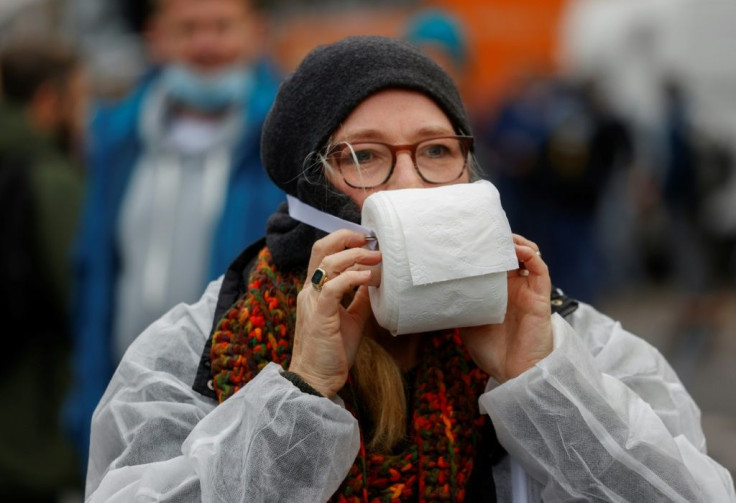Virus Rages In German Regions With Far-right Leanings
As Germany battles a second wave of Covid-19, a pattern has begun to emerge: Many of the hardest-hit places are those with strong support for the far right. Coincidence?
Hailed as a success story during the first wave of the pandemic, Germany is now struggling to bring the second wave under control with new daily cases regularly topping the 20,000 mark.
A record 590 deaths were recorded on Wednesday, according to the Robert Koch Institute (RKI) disease control centre.
In a sign of the seriousness of the situation, Chancellor Angela Merkel pleaded with MPs on Wednesday for tougher measures to contain the virus.
"If we have too many contacts before Christmas and it ends up being the last Christmas with the grandparents, then we'd really have failed," she said.
The picture is especially bad in many former East German states that were largely spared by the first wave in March and April.
"It is striking that the worst affected regions are those with the highest AfD vote" in 2017's general election, says Marco Wanderwitz, the government commissioner for the former East German states.
Wanderwitz himself hails from Saxony, which had the highest incidence rate in Germany at 319 on Tuesday -- well above the national average of 114.
The anti-Muslim, anti-immigration Alternative for Germany (AfD) party, which is increasingly taking aim at government measures to tame the virus, achieved its highest vote share of 27 percent in the same state three years ago.
A team from the Institute for Democracy and Civil Society in Jena has embarked on a study on the "strong and very significant statistical correlation" between AfD support and the intensity of the pandemic, its director Matthias Quent said on Twitter.
However, "there could be factors that explain the high AfD results and at the same time the high incidence rates" without the two necessarily being linked, the researcher cautioned.
The proportion of elderly people and large families, the presence of cross-border commuters and the organisation of the care system, which differs between states, could also influence the intensity of the pandemic, he said.
In Saxon cities such as Goerlitz and Bautzen, where the far right attracts more than one in four voters, the incidence rate is around 500.
Meanwhile, in the gentrified state capital Leipzig, where the Greens are winning the race against the far right in opinion polls, the infection rate was close to the federal average on Tuesday at 140.

Scepticism about the virus and measures to contain it is rife in Saxony, the birthplace of the Islamophobic Pegida movement -- including among medical personnel and economic decision-makers.
In Bautzen, celebrity entrepreneur Joerg Drews, who runs a local construction company, has been pouring his profits into "alternative media", according to the ARD broadcaster.
But Saxony is not the only region with both high infection rates and big backing for the far right.
The Regen district in Bavaria, for example, had the highest incidence rate in Germany on Tuesday at 579. Three years ago, it also gave the AfD its highest score in Bavaria at more than 16 percent.
In Gelsenkirchen, the AfD's biggest stronghold in Germany's most populous state of North Rhine-Westphalia, the incidence rate is three times higher than in the neighbouring city of Muenster (169 versus 56).
The AfD is the only German political party to have openly displayed fundamental scepticism of -- and opposition to -- virus restrictions.
AfD lawmakers have voiced opposition to wearing masks in the Bundestag lower house of parliament, for example, with one calling them "burqas for all".
More than half of AfD voters (56 percent) consider Germany's virus restrictions to be excessive, according to a recent Forsa poll.
The far-right party has also been linked to the Querdenker or "Lateral Thinkers" movement, the umbrella group for most of Germany's sometimes violent anti-shutdown demonstrations since the outbreak of coronavirus.
"The link between the conspiracy theorists and the far-right scene is unfortunately logical, because they share many theories," Miro Dittrich, a researcher at the Amadeu Antonio Foundation fighting racism and extremism, told AFP.
"They both believe a small elite is secretly controlling events to the detriment of the 'Germans'," he said.
© Copyright AFP 2024. All rights reserved.




















